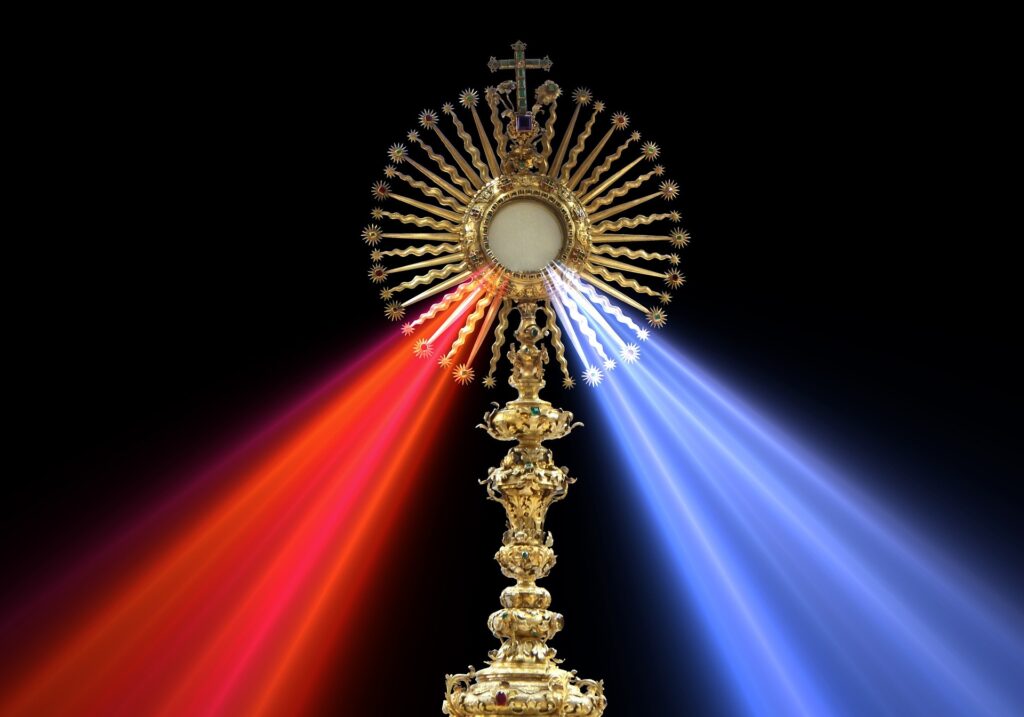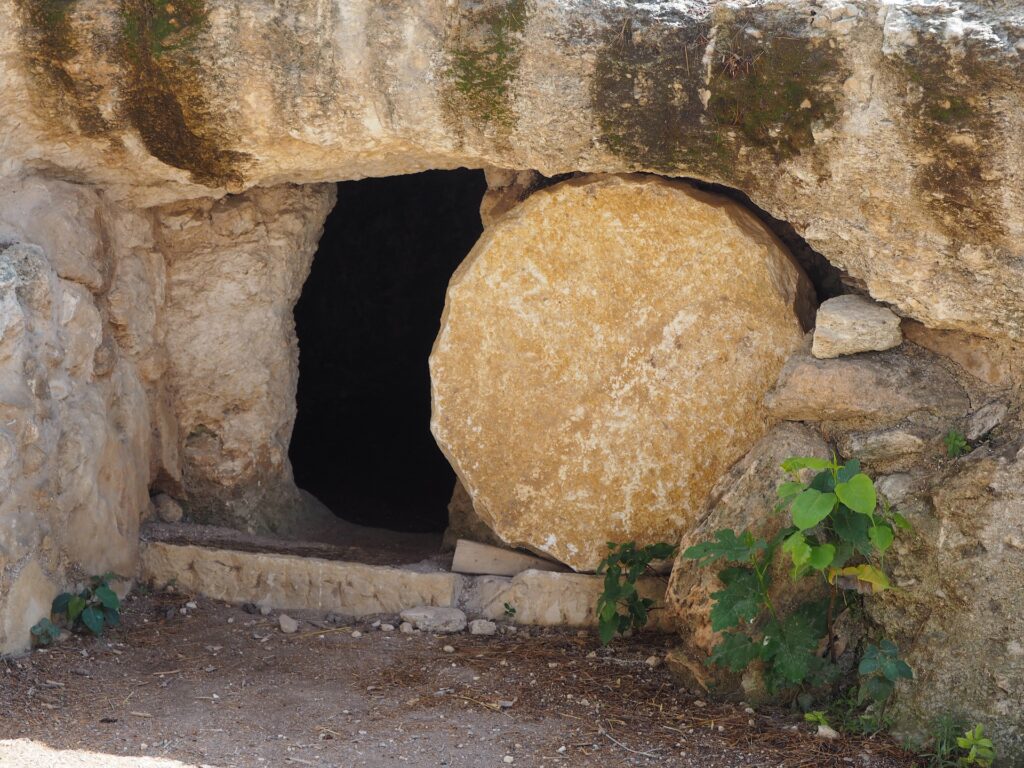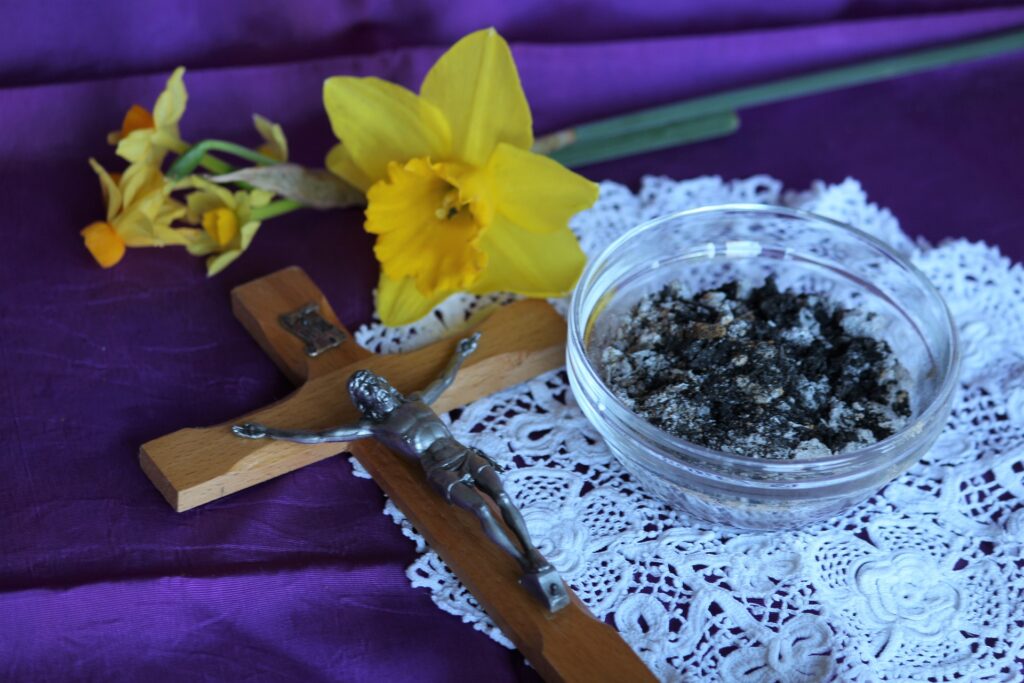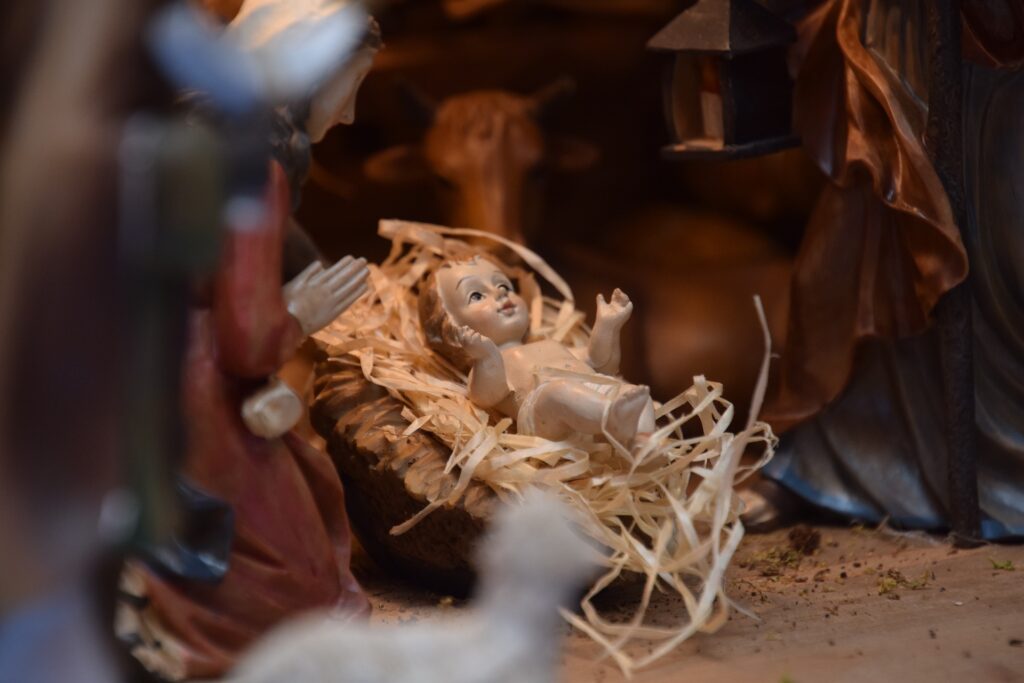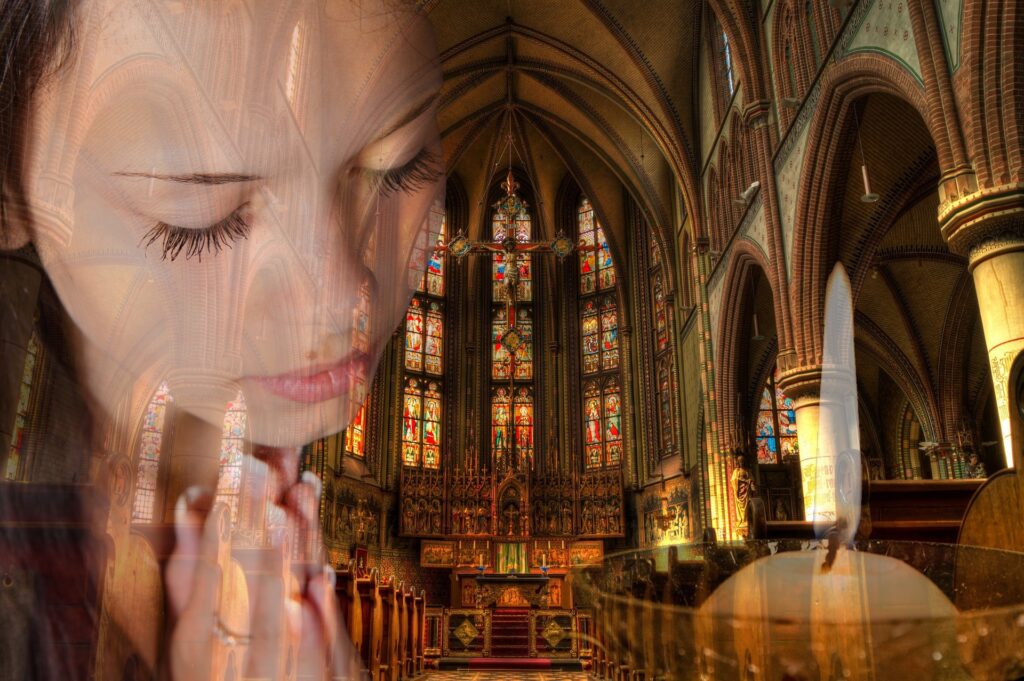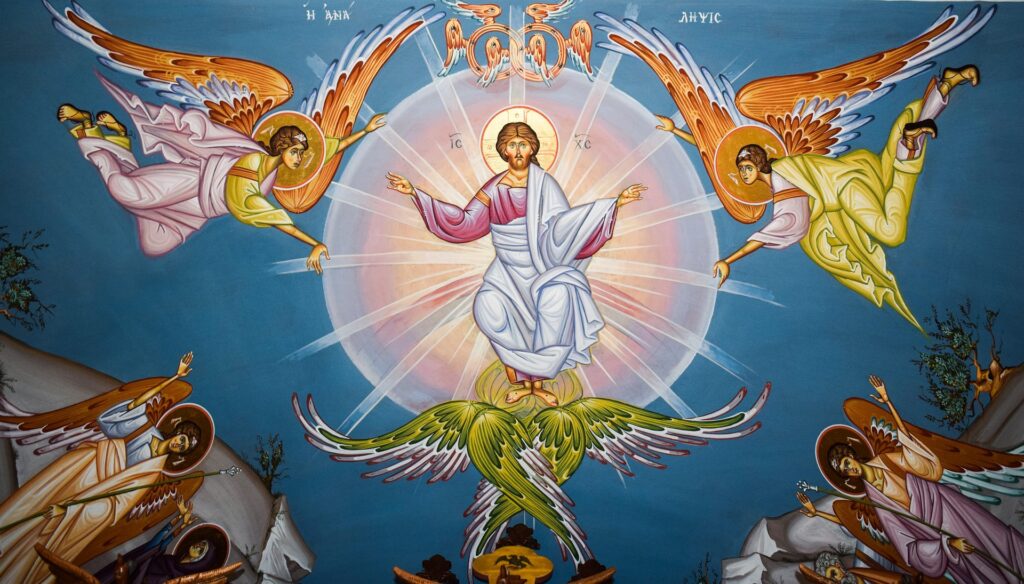
By Deacon Richard Hay
“Commissioning the Church”
At the commissioning of a United States Navy ship, everything happens on the pier next to the ship during the ceremony. The crew is there in their best uniforms, honored guests are seated along with the new ships leadership and speeches are given. Then, just towards the end of the commissioning ceremony, an order is giving to “Bring this ship alive!”
At the sound of this order, the officers and men of the crew break out of their formation and rush onboard to stand along the edge of the ships main deck side by side – we called this “Manning the rails”. All these men and women are called “plank-owners” because they are members of the ships first crew.
Today, on this Solemnity of the Ascension, the four verses we hear in today’s gospel are the last verses in the 28th and final chapter of Matthew which is actually only 20 verses long itself. It is a short chapter but encompasses the days between the resurrection and the Lord’s ascension. These last four verses make up what is known as “The Great Commissioning.”
This is where Jesus tells the apostles to “bring the ship alive!” – the ship that is God’s church and they are the “plank-owners” of this new missionary church that is to “make disciples of all nations.”
This commissioning doesn’t happen on a pier but on a mountain – whenever Jesus showed His Glory there was almost always a mountain involved and His ascension is no exception.
We hear that when the disciples saw Jesus, they worshipped him but also doubted. Earlier in this final chapter of Matthew, the disciples had heard from the two Mary’s that they had seen the risen Lord and that He wanted them to meet Him in Galilee. We have read other accounts in the gospels that the apostles encountered the risen Jesus many times during those forty-days after Easter – yet they still doubted. The lesson for us is that as long as we don’t dwell in it, doubt is going to happen and that is OK – at least for a short while.
Christ knows their doubt and that is why he approaches them – gets close to them as He prepares to commission them. They are told to go make disciples of all nations; to baptize them in the name of the Father, and of the Son, and of the holy Spirit – the same words we hear during the Sacrament of Baptism. Jesus then adds that the disciples should teach all the nations to observe all that he has commanded them. Finally, just before his ascension, He reassures the disciples that He will always be with them until the end of the age.
That is a lot happening in just four verses however, it gives us a wonderfully rich understanding of our own commissioning as Christians, commissioning’s we experience regularly throughout our faith life and that we should act on daily.
The first commissioning we receive is at our baptism. If we were baptized as a baby, then our parents and godparents accepted that commissioning to raise us in the faith, to keep God’s commandments so that we may love the Lord and our neighbor as Christ taught us to do. Those same promises were made by anyone who was baptized as a young child or adult and then they were sealed with the Sign of the Cross and anointed with Sacred Chrism Oil as we were received as members of the Body of Christ.
Another time in our faith journey when we have a commission is after receiving absolution in the Sacrament of Reconciliation – one of our repeatable sacraments. In the words of The Act of Contrition, we pray that we firmly intend, with the help of the Lord, to do penance, to sin no more, and to avoid whatever leads us to sin. It is a form of self-commissioning but one we do not take on alone because Christ is with us to help. When the priest says Go in peace at the end of our confession, that is also a commissioning and how we should go out and approach our lives within the world.
At Confirmation, we are once again commissioned, this time through the words of the bishop as he extends his hands over us and calls on the Holy Spirit to be our helper and guide, to give us a spirit of wisdom and understanding, a spirit of right judgment and courage, a spirit of knowledge and reverence, and to be filled with a spirit of wonder and awe in the presence of God. The Holy Spirit we first received at our baptism, is affirmed in us through confirmation, and provides us a guide as we venture forth into the world to share the good news.
In the Sacrament of Matrimony, couples are commissioned to celebrate fruitfully the mystery of the union of Christ and the Church, to live it rightly, and to bear witness to it publicly before all. In addition, when they both embrace the conjugal life there is another commissioning in accepting and educating their own children, they then help one another to become holy through that process.
Finally, every time we attend the sacrifice of the Mass, after the final blessing, the dismissal is when the priest or deacon commissions us as we are sent forth to announce the Gospel of the Lord or to go in peace glorifying the Lord by our lives. Commissioned to live our lives in Christ as examples of His love and forgiveness in our homes, workplaces, schools, and everywhere else we are in the world.
After receiving all of the other commissions through the sacraments, this is the one which gives us a regular reminder of our role in the Church. We are to be the hands and feet – the Body of Christ in the world. This is why attending mass regularly to receive the Lord in the Eucharist and to be sent forth is so important. As I have said before, attend as often as possible because the Eucharist is another of our repeatable sacraments.
Just before Jesus ascended into heaven from that mountain, He reminded the apostles that he would be with them always. That would be Him leaving the Holy Spirit, the first Pentecost, as their strength – there is a reason the Holy Spirit ties together everything we do in the church – He is the thread that ties it all together from the beginning of time until now and beyond.
Just like he said to the apostles, the Father and the Son are with us always through the presence of the Holy Spirit in our lives and every time we participate in the sacraments, attend the celebration of the Mass, and are sent forth to announce the Gospel of the Lord. Every time we approach the Holy Eucharist and say Amen, we are professing that faith and belief in the true presence of Christ in the Eucharist. That gift is intended to feed and sustain us as we carry out our own commissioning by the Lord – to share our faith with others.
So, here’s the question to take away today, how will each one of us carry out our roles as members of this church’s crew, the plank-owners in this local and universal Church, to fulfill the commissioning that Christ himself gave each one of us and continues to send us forth with today and every day of our lives?

